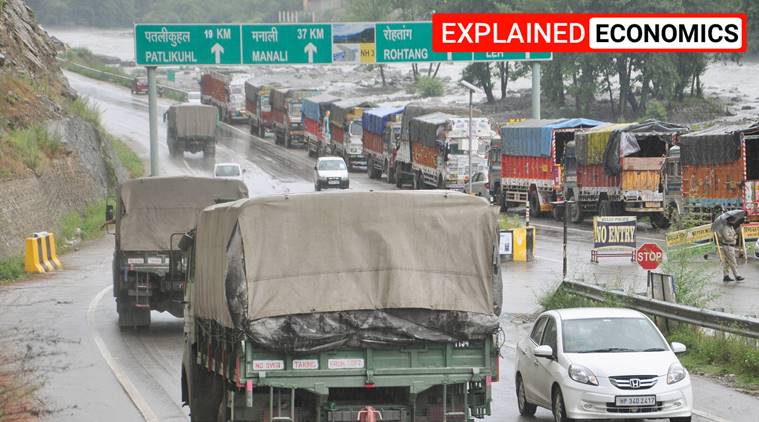After a series of measures to prevent the influx of Chinese products and investments into India, the government has now amended the General Financial Rules, 2017 to impose curbs on public procurement from bidders of countries that share a land border with India.
This latest move by the government, on grounds of defence and national security, is expected to affect mainly Chinese entities as countries to which lines of credit or development assistance have been extended are exempted from the fresh restrictions.

The new order
Any bidder from countries which share land borders with India will be eligible only if it is registered with the Registration Committee constituted by the Department for Promotion of Industry and Internal Trade (DPIIT) and will be required to take mandatory political and security clearance from the Ministries of External and Home Affairs, respectively. The central government has also directed state governments to implement this order for all public procurement.
Apart from attached ministries and departments and subordinate bodies, this new order will be applicable to all autonomous bodies, public sector banks and financial institutions, central public sector enterprises, public-private partnerships receiving financial support from the government or public sector undertakings, union territories and National Capital Territory (NCT) of Delhi and the linked agencies.
📣 Express Explained is now on Telegram. Click here to join our channel (@ieexplained) and stay updated with the latest
Exceptions to the order
Relaxation will be provided for the procurement of medical supplies for containment of COVID-19 global pandemic till December 31. Also, the order for prior registration will not apply for countries to which the Government of India extends lines of credit or provides development assistance, even if it shares a land border with India.
India shares its border with China, Nepal, Bhutan, Pakistan, Bangladesh and Myanmar. As per official data, out of these land-border sharing countries, the government has extended lines of credit to Bangladesh, Nepal, Myanmar, exempting them from this new order. India has extended lines of credit totalling $30.59 billion with 64 countries —including 41 from Africa.
Story continues below this ad
This order will also not apply to cases where orders have been placed or a contract has been concluded or letter of acceptance has been issued, but new tenders will be covered under this order. Also, if the first stage of evaluation of qualifications has not been completed in the already invited tenders, bidders not registered under the new order will be treated as not qualified.
Also in Explained | Why young people are protesting against the government in Thailand, again
Previous anti-China measures
The government has been taking a series of measures in recent months to restrict the inflow of Chinese investments and products into the country.
On June 23, the government made it mandatory for sellers on the Government e-Marketplace (GeM) portal to clarify the country of origin of their goods when registering new products. The GeM portal now allows buyers to reserve a bid for Class I local suppliers, or suppliers of those goods with more than 50 per cent local content. For bids below Rs 200 crore, only Class I and Class II (those with more than 20 per cent local content) are eligible.
Story continues below this ad
The government had also announced an interim ban on 59 apps with Chinese links including TikTok, ShareIt, UC Browser, CamScanner and WeChat citing “emergent threats” to the country’s sovereignty and national security.
Following the clashes between Indian and Chinese troops in Galwan Valley on June 15, the government had also pushed for “Atmanirbhar Bharat”, which prompted several government departments to launch an offensive against imports from China. At $ 70.32 billion in 2018-19 and $ 62.38 billion between April 2019 and February 2020, China accounts for the highest proportion of goods imported into India (around 14 per cent in 2019-2020 so far).
Earlier in April, the government had amended the FDI rules mandating prior approval for investment by entities in countries that share land borders with India. The move came days after China’s central bank, the People’s Bank of China (PBoC), raised its shareholding in Housing Development Finance Corporation (HDFC) to over one per cent.
The government stated that prior approval was compulsory for foreign investments from all the countries sharing borders with India to prevent “opportunistic takeovers” of domestic firms following the Covid-19 pandemic.

 Army convoy vehicles move towards Ladakh, amid the stand off between Indian and Chinese troops, at Manali-Leh highway in Kullu district, Wednesday, July 8, 2020. (PTI Photo/File)
Army convoy vehicles move towards Ladakh, amid the stand off between Indian and Chinese troops, at Manali-Leh highway in Kullu district, Wednesday, July 8, 2020. (PTI Photo/File)





































